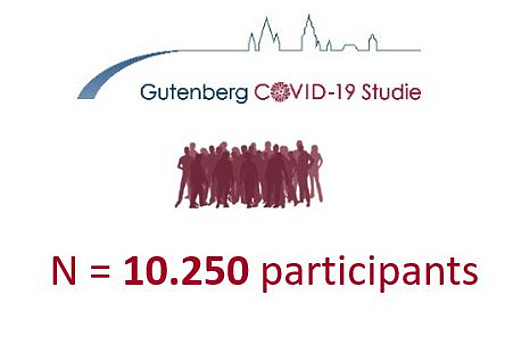Study Design

The Gutenberg COVID-19 study is a prospective cohort study based on a representative population sample of the Rhine Hesse region. In order to ensure representativeness, the participants are obtained through a random sample drawn by the resident's registration office.
The 10,250 participants were included by the drawing of 1,008 persons in representative waves.
The 10,250 participants were included by the drawing of 1,008 persons in representative waves.
Objectives of the Gutenberg COVID-19 Study
The objective of the Gutenberg COVID-19 Study is to analyze the impact of the SARS-CoV2 pandemic on public health:- Spread of SARS-CoV2 infection in the population
- Quantification of the impact of the pandemic on society
- Changes in the utilization of medical care during the pandemic
- Psychosocial, occupational and lifestyle-related implications
- Identification of risk factors of symptomatic SARS-CoV2 infections
- Investigation of predictors for severity and long-term effects of SARS-CoV2
- Relevance of infectious diseases for public health during the infection season
- Establishment of a sustainable scientific resource for translational research on SARS-CoV2
- Harmonized data for (inter)national network analyses
- Establishment of a biobank for cells of the immune system